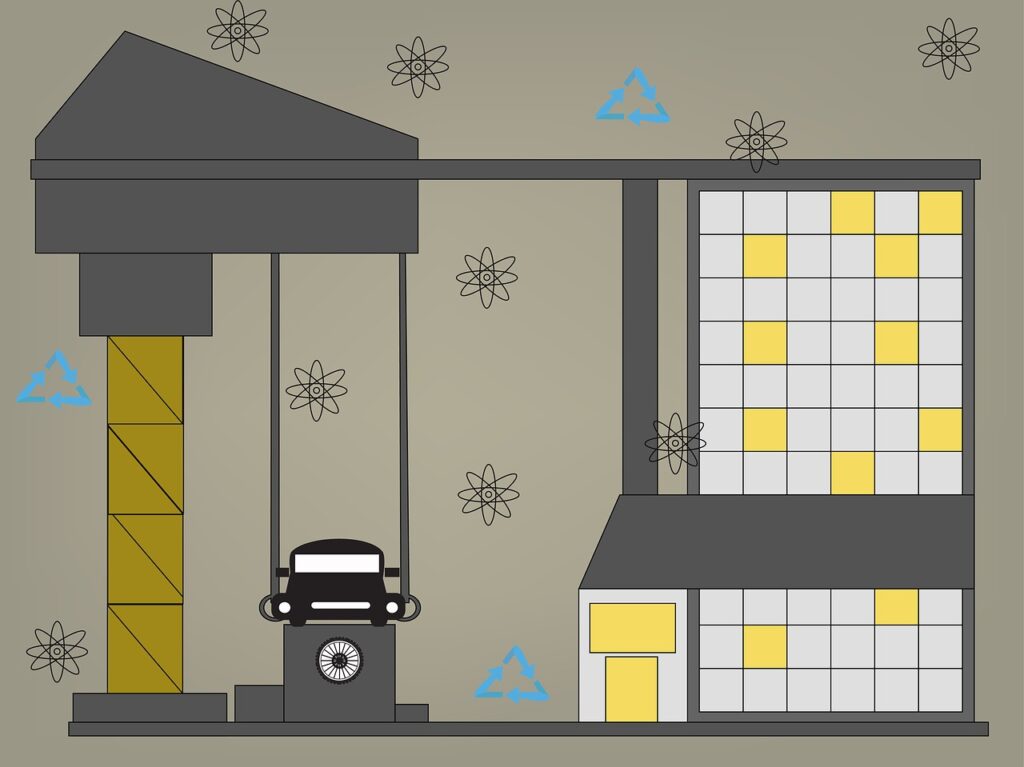Are you a self-employed individual looking for affordable insurance options? Look no further! In this article, we will explore the world of cheap insurance for self-employed individuals. Discover various insurance plans that cater specifically to self-employed individuals and learn how you can protect yourself and your business without breaking the bank. Don’t miss out on this valuable information that can save you money and give you peace of mind.
1. Health Insurance Options
1.1 Government-Sponsored Health Insurance
As a self-employed individual, finding affordable health insurance can be a challenge. However, one option to consider is government-sponsored health insurance. In many countries, the government provides certain healthcare programs or subsidies to help individuals and families access affordable health coverage. These programs are designed to cater to different income levels and are often based on household size and income. By exploring government-sponsored health insurance options, you can potentially find a plan that fits your needs and budget.
1.2 Health Insurance Marketplaces
Another avenue to explore is health insurance marketplaces. These are online platforms where you can compare and purchase health insurance plans from various providers. Health insurance marketplaces often offer a range of options that cater to different budgets and coverage levels. By shopping around on these marketplaces, you can find competitive rates and choose a plan that meets your specific healthcare needs. It’s important to note that the availability of health insurance marketplaces may vary depending on your location.
1.3 Association Health Plans
If you belong to a professional or trade association, you may have access to association health plans. These plans are typically offered to members of specific organizations or industries and provide group coverage. By leveraging the purchasing power of the entire association, these plans can often provide more affordable rates and comprehensive coverage options. If you qualify for an association health plan, it’s worth exploring the benefits and cost savings it can offer.
1.4 Short-Term Health Insurance
Short-term health insurance plans can provide temporary coverage for individuals who are in between jobs or waiting for other healthcare options to become available. These plans typically have lower premiums but may also have more limited coverage. While short-term health insurance may not provide the same comprehensive coverage as other options, it can provide a temporary safety net until a long-term solution is secured. If you anticipate a brief gap in your healthcare coverage, short-term health insurance can be a cost-effective choice.
2. Liability Insurance
2.1 General Liability Insurance
As a self-employed individual, liability insurance is critical to protecting yourself and your business from potential lawsuits or claims. General liability insurance is designed to cover claims related to bodily injury, property damage, and personal injury. This type of insurance can help cover legal costs, medical expenses, and settlements or judgments that may arise from such claims. By having general liability insurance, you can have peace of mind knowing that you are protected from unforeseen accidents or incidents that may occur in relation to your business.
2.2 Professional Liability Insurance
Professional liability insurance, also known as errors and omissions insurance, is particularly important for individuals in professions that involve providing specialized services or advice. This type of insurance protects you in the event that a client alleges negligence or mistakes that result in financial loss or harm. Professional liability insurance can cover legal fees, settlements, and damages associated with such claims. Whether you’re a consultant, a designer, or any other type of professional, having professional liability insurance can safeguard both your business and your professional reputation.
2.3 Product Liability Insurance
If your business involves manufacturing or selling products, product liability insurance is essential. This type of insurance protects you from claims related to physical injury or property damage caused by a product you’ve created or sold. While you may take all the necessary precautions, accidents can happen, and product liability insurance can provide the financial protection you need. In the event of a product defect or failure, this insurance can cover legal costs, medical expenses, settlements, and judgments. Ensuring that you have product liability insurance minimizes the financial risks associated with potential product-related claims.
3. Property Insurance
3.1 Home-Based Business Insurance
For those running a business from home, it’s important to consider home-based business insurance. This type of insurance protects your business assets and provides liability coverage for any accidents or incidents that may occur within your home. Home-based business insurance typically covers property damage, theft or loss of business equipment, and general liability claims. By having this insurance, you can protect your business assets, inventory, and equipment, as well as provide coverage for any potential claims that may arise while conducting business from your home.
3.2 Commercial Property Insurance
If your business operates from a separate commercial space, such as an office, warehouse, or retail store, commercial property insurance is crucial. This insurance protects your physical assets, such as buildings, equipment, inventory, and furnishings, from perils such as fire, theft, vandalism, or natural disasters. Commercial property insurance can also cover the loss of business income in the event that your operations are disrupted due to a covered incident. By safeguarding your commercial property, you can mitigate financial loss and ensure the continuity of your business.
4. Disability Insurance
4.1 Short-Term Disability Insurance
Disability insurance is designed to provide income replacement if you become disabled and are unable to work. Short-term disability insurance offers coverage for a temporary disability, typically up to a year. This insurance can help you maintain financial stability during your recovery period by replacing a portion of your lost income. With short-term disability insurance, you can focus on your health and well-being without worrying about the financial burdens that may arise from being unable to work.
4.2 Long-Term Disability Insurance
Long-term disability insurance provides coverage for more extended periods, typically beyond a year. This insurance is especially important for self-employed individuals who rely solely on their income for their livelihood. In the event of a long-term disability, this insurance can provide ongoing income replacement to help you manage your living expenses. By having long-term disability insurance, you can protect your financial security and ensure that you have the necessary funds to meet your needs even if you are unable to work for an extended period of time.
5. Life Insurance
5.1 Term Life Insurance
Life insurance provides financial protection for your loved ones in the event of your passing. Term life insurance is a cost-effective option that offers coverage for a specified term, such as 10, 20, or 30 years. With term life insurance, your beneficiaries will receive a lump sum payment upon your death, which can help cover expenses such as funeral costs, outstanding debts, or mortgage payments. By having term life insurance, you can have peace of mind knowing that your loved ones will be financially protected even if you’re no longer there to provide for them.
5.2 Whole Life Insurance
Whole life insurance is a permanent life insurance option that provides coverage for your entire lifetime. Unlike term life insurance, whole life insurance not only offers a death benefit but also includes a cash value component that accumulates over time. This cash value can be accessed during your lifetime and used for various purposes, such as supplementing retirement income or paying for education expenses. While whole life insurance may have higher premiums than term life insurance, it offers lifelong protection and potential financial benefits that can help secure your future and the future of your loved ones.
6. Auto Insurance
6.1 Commercial Auto Insurance
If you use your vehicle for business purposes, it’s crucial to have commercial auto insurance. Commercial auto insurance provides coverage for vehicles used primarily for business purposes, whether you own a single vehicle or an entire fleet. This type of insurance typically offers higher coverage limits and additional protection compared to personal auto insurance. By having commercial auto insurance, you can protect your business assets, cover medical expenses in the event of an accident, and comply with legal requirements specific to commercial vehicles.
6.2 Personal Auto Insurance
If you use your personal vehicle for both personal and business purposes, personal auto insurance is a necessity. Personal auto insurance provides coverage for bodily injury and property damage liability, as well as medical payments and uninsured/underinsured motorist coverage. While your personal auto insurance policy may not offer the same comprehensive coverage as commercial auto insurance, it can still provide essential protection for accidents or incidents that occur while using your vehicle for business-related activities. It’s important to review your policy to ensure that you have adequate coverage for both personal and business use.
7. Cyber Liability Insurance
7.1 Data Breach Coverage
As technology becomes increasingly integrated into business operations, the risk of data breaches and cyberattacks also rises. Cyber liability insurance provides protection in the event of a data breach or other cyber incidents. This insurance can help cover the costs associated with managing a data breach, including notifying affected individuals, providing credit monitoring services, conducting a forensic investigation, and defending against potential lawsuits. By having data breach coverage, you can protect your business from the financial repercussions of a cyber incident and ensure that your customers’ sensitive information remains secure.
7.2 Identity Theft Insurance
Identity theft insurance offers coverage in the event that you become a victim of identity theft. This insurance can help cover the expenses associated with restoring your identity, such as legal fees, lost wages, and fraudulent charges. Identity theft insurance can also provide assistance in resolving credit issues and repairing your reputation. By having identity theft insurance, you can have peace of mind knowing that you have financial protection and support in the event of an identity theft incident.
8. Workers’ Compensation Insurance
8.1 Individual Workers’ Compensation Policy
If you have employees, workers’ compensation insurance is essential. Workers’ compensation insurance provides coverage for medical expenses, lost wages, and rehabilitation costs if an employee suffers a work-related injury or illness. By having workers’ compensation insurance, you can fulfill your legal obligations as an employer and provide financial protection for your employees in the event of a workplace accident. It’s important to check the specific requirements and regulations related to workers’ compensation insurance in your jurisdiction to ensure compliance.
8.2 Coverage through a Client’s Policy
In some cases, you may be able to obtain workers’ compensation coverage through a client’s policy. For example, if you are a contractor or freelancer working with a larger company, they may require you to be covered under their workers’ compensation policy while you’re on their premises or working on their behalf. This arrangement can help reduce the financial burden of obtaining a separate policy while still providing the necessary coverage for your employees. It’s important to discuss this option with your clients and clarify the terms of coverage to ensure adequate protection for both parties.
9. Business Interruption Insurance
9.1 Business Interruption Insurance for Loss of Income
Unforeseen events such as natural disasters, fires, or other catastrophic incidents can lead to the temporary closure of your business. Business interruption insurance provides coverage for loss of income during these periods of closure. This insurance can help replace the income you would have earned and cover ongoing expenses such as rent, utilities, and payroll. By having business interruption insurance, you can ensure that your business can recover financially and continue its operations after a significant disruption.
9.2 Extra Expense Coverage
In addition to loss of income, business interruption insurance can also include extra expense coverage. This coverage helps reimburse you for additional expenses incurred to minimize the impact of the disruption and restore your business operations as quickly as possible. These expenses may include the cost of temporary relocation, equipment rentals, or expedited shipping fees. Extra expense coverage is particularly beneficial for self-employed individuals who rely heavily on their business operations and depend on a quick recovery to minimize financial loss.
10. Tips to Lower Insurance Costs
10.1 Compare multiple quotes
When shopping for insurance policies, it’s essential to compare multiple quotes from different providers. By obtaining quotes from various insurers, you can evaluate the coverage options and pricing to find the best value for your specific needs. Keep in mind that the lowest price may not always offer the most comprehensive coverage, so it’s important to balance cost with the level of protection provided.
10.2 Bundle policies
Insurance providers often offer discounts when you bundle multiple policies together. Consider consolidating your insurance needs with a single insurer to take advantage of these cost-saving opportunities. By bundling your policies, such as combining your home-based business insurance and personal auto insurance, you can potentially save money and simplify your insurance management.
10.3 Increase deductibles
Increasing your deductibles can help lower your insurance premiums. A deductible is the amount you are responsible for paying out of pocket before your insurance coverage kicks in. By choosing a higher deductible, you can reduce your premiums, but keep in mind that you will need to have the funds available to cover the deductible if you need to make a claim.
10.4 Maintain a good credit score
Your credit score can impact your insurance rates. Insurance companies often consider credit history when determining premiums. By maintaining a good credit score, you can potentially qualify for lower rates and save money on your insurance policies. Make sure to regularly review your credit report and take steps to improve your credit score if needed.
10.5 Monitor your coverage and update as needed
Lastly, it’s important to periodically review and update your insurance coverage. As your business evolves, your insurance needs may change. Ensure that you have the appropriate coverage limits and types of coverage to adequately protect your business and personal assets. Regularly reassess your insurance needs and make adjustments as necessary to ensure you’re getting the best value and protection.
Remember, finding cheap insurance as a self-employed individual requires research, careful consideration of your specific needs, and a thorough understanding of the available options. By exploring different insurance types and applying these tips, you can effectively protect yourself and your business without breaking the bank.



